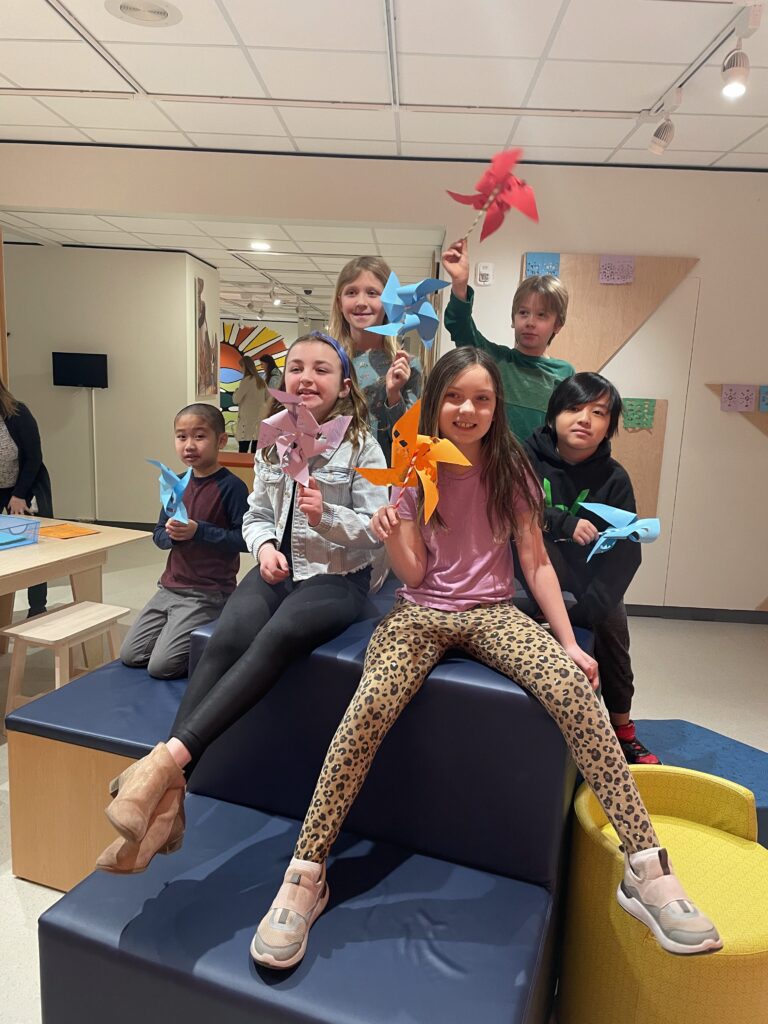

On Tuesday, the Woodson Art Museum presented “Memory Loss, Creative Engagement, and Museum-based Programming” a seminar supported by the Helen Bader Foundation. Open to our community partners, docents, and the public, speakers were Mary Dickman, Outreach Specialist, Alzheimer’s Association of Greater Wisconsin; Anne Basting, Director, University of Wisconsin Milwaukee Center on Age & Community; and Erin Narloch and I, Woodson Art Museum Educators.
Mary Dickman began with dementia-causing diseases and their symptoms, sharing information on the challenges faced by those with the disease and their caretakers. Most relevant to the Museum’s future programming was Mary’s assessment that “successful activities should reflect a person’s life story; be adult in nature; stimulate all five senses; perhaps be initiated by others; and consider the process to be more important than the outcome.” It’s promising that these attributes are already ingrained in Woodson Art Museum programs.
From Anne Basting’s perspective, the way museums treat people with dementia will eventually become the norm because statistics suggest that in the next decade, more than 14 million people will have some form of dementia or memory loss. These numbers mean that we must change how we address the needs of people with memory loss, especially when it comes to delivering museum services.
One of Anne’s core philosophies is the importance of focusing on the PERSON, not the disease. This “mantra” should inform the development of museum-based creative engagement programs. It’s also essential that creative engagement nurtures self-expression, which can be accomplished through the arts. By putting aside misconceptions about dementia, museums can create environments in which patients and caregivers can learn new skills and enjoy positive experiences.
Erin and I provided an overview of preliminary plans for future museum-based programming at the Woodson for individuals with early and mid-stage memory loss and their caregivers. We are developing these plans as part of a Wisconsin Museum Consortium, which includes the Milwaukee Public Museum, Racine Art Museum, Kohler Art Center, Museum of Wisconsin Art, and the Woodson, all recipients of Helen Bader Foundation planning grants.
The Woodson Art Museum is working toward developing a five-year implementation plan. We’re currently in year one: planning and information gathering. In year two, we’ll test two pilot programs: for individuals still living at home with early and mid-stage memory loss and their caregivers and for various service-providing centers.
We’ll offer additional monthly programs as needed in year three and consider expansion to satellite locations. In year four, we’ll evaluate the need for programs for individuals with later-stage memory loss and their caregivers, and in year five we’ll review all activities and implement appropriate changes.
We have a long road to travel, but we’re committed to serving the needs of dementia patients and their caregivers, and we’re confident that with our local partners, Wisconsin museum colleagues, and Helen Bader Foundation support, we’ll be successful.
Stay tuned.
